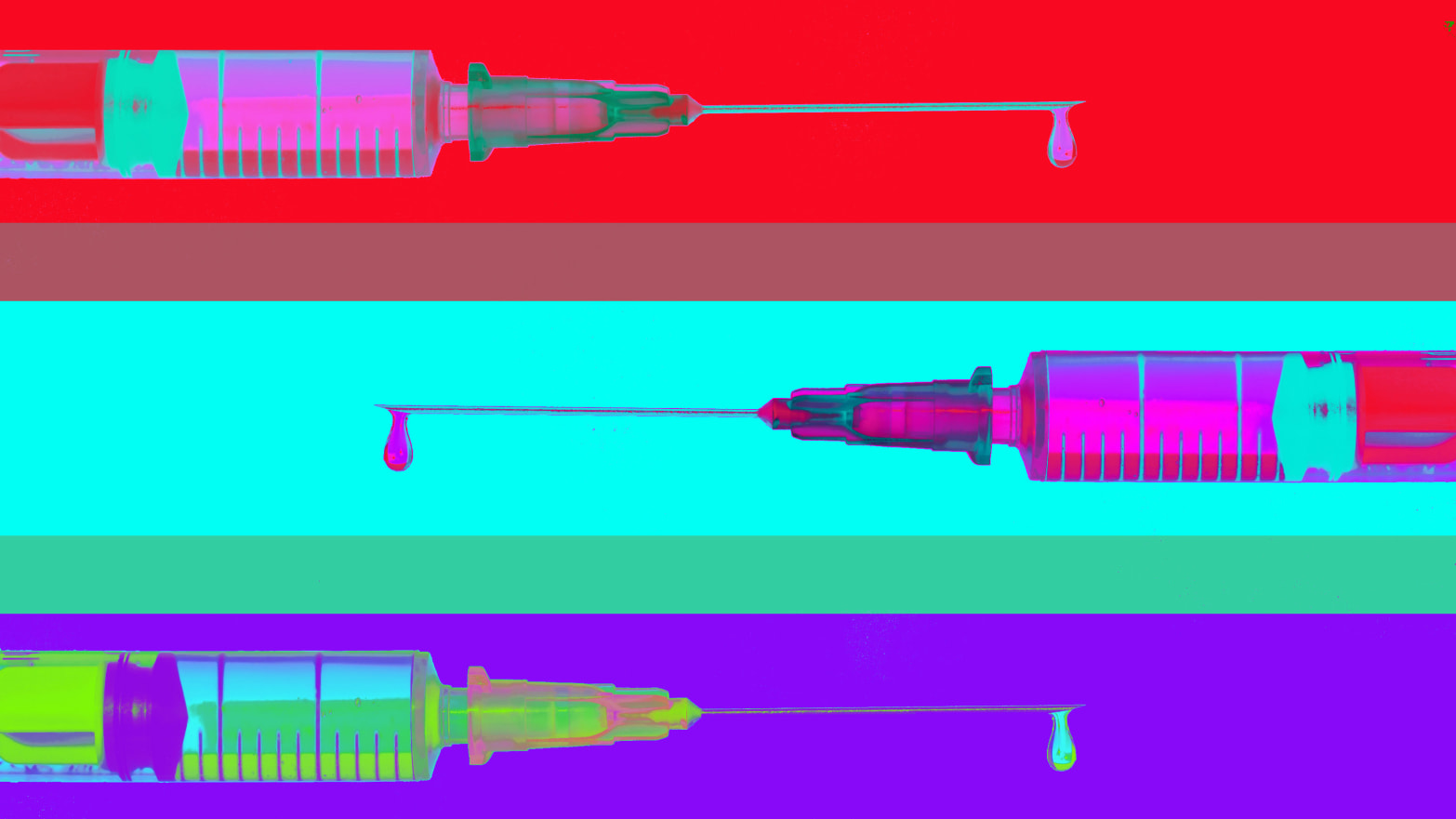For the first time since January, coronavirus cases are rising in all 50 states.
While the overwhelming majority of deaths, cases, and hospitalizations are in unvaccinated people, the highly contagious Delta variant is taking the country by storm. Meanwhile, anecdotal reports of breakthrough cases among the vaccinated—even if they are almost never causing serious illness—are raising alarm bells as Americans desperately attempt to resume something resembling normal life.
For some, that may make the prospect of a so-called booster shot appealing. However, experts canvassed by The Daily Beast say the three vaccines currently authorized for U.S. emergency use—two-shot vaccines from Moderna and Pfizer, and a one-shot vaccine from Johnson & Johnson—are more than enough to protect you.
In other words, deviating from what doctors, health officials, and the feds are recommending is not the way to ward off a scary new variant.
“The medical consensus right now is that there isn’t much need for a booster,” Genevieve Kanter, an assistant professor at the University of Pennsylvania Perelman School of Medicine who studies disparities in health care, told The Daily Beast on Monday.
“The vaccines appear to be protecting well against the new Delta variant, and even though immunity does diminish over time after initial vaccination, we haven’t seen large declines in immunity over this time period yet,” she said, adding, “We may need boosters later on, perhaps in eight to 12 months, but not yet.”
Centers for Disease Control and Prevention (CDC) data show that, over the last week, daily new cases have increased almost 70 percent nationwide. Deaths related to the deadly virus have increased by 26 percent, and hospitalizations have increased 36 percent in the past seven days as well.
The deadly combination of unvaccinated holdouts and the Delta variant has even forced some state officials to revert back to COVID-19 lockdown guidelines and renewed calls for mask mandates in several cities. But we know who’s getting and spreading Delta almost all of the time, and it is not people who have gotten their full coronavirus vaccination.
“As the CDC director said, this is a pandemic of the unvaccinated,” Dr. Amesh Adalja, a senior scholar at the Johns Hopkins Center for Health Security and a specialist in infectious diseases, told The Daily Beast.
Americans anxious about spiking case counts and reports of vaccinated people testing positive could be forgiven for wondering about their options.
Earlier this month, Pfizer announced that research shows their two-dose inoculation will likely require a booster shot “within six to 12 months after full vaccination.” In a statement, the New York pharmaceutical giant said they were going to seek an emergency authorization for the booster shot in the United States. In Israel, health officials have already begun providing a third-dose option of Pfizer to residents with weaker immune systems after increasing cases of the Delta variant.
However, the U.S. Food and Drug Administration (FDA), CDC, and the National Institutes of Health (NIH) all pushed back on the pharmaceutical company’s claims, writing in a joint statement that fully vaccinated Americans “do not need a booster shot at this time.” A Pfizer spokesperson referred The Daily Beast to the company’s July 8 statement about their ongoing booster trial.
“FDA, CDC, and NIH are engaged in a science-based, rigorous process to consider whether or when a booster might be necessary. This process takes into account laboratory data, clinical trial data, and cohort data—which can include data from specific pharmaceutical companies, but does not rely on those data exclusively,” the regulators said in a statement. “We continue to review any new data as it becomes available and will keep the public informed. We are prepared for booster doses if and when the science demonstrates that they are needed.”
Still, on Friday, the FDA granted Pfizer and BioNTech priority review designation for full approval—as opposed to just emergency authorization—of their COVID-19 vaccination for individuals ages 16 and older. That status would make the future rollout of booster shots much smoother logistically.
The other two manufacturers of vaccines currently under emergency use in the United States have also indicated they are mulling the possibility of boosters. Johnson & Johnson is looking into another dose of their existing one-shot vaccine that had lower efficacy than the other two inoculations and has been plagued by setbacks over very rare side-effect concerns. The shot’s reputation has reportedly sent some J&J recipients on the hunt for other vaccination doses in hopes of better protecting themselves.
Massachusetts-based pharmaceutical company Moderna has likewise indicated that it is studying potential third doses, including the possibility of an additional half-dose of its existing vaccine.
In a statement to The Daily Beast, a spokesperson for Johnson & Johnson said the company believes its single-shot “vaccine will continue to offer durable protection and at present, there is no evidence to suggest a need for a booster dose to be administered.” Moderna did not immediately respond to The Daily Beast’s request for comment.
For his part, Adalja believes it is “extremely premature” for people to be going rogue and seeking out additional doses outside local or federal guidelines.
“For the healthy general population, the vaccinations are working exactly as we wanted them to. They are preventing severe illness, hospitalizations, and death,” Adalja told The Daily Beast. “It’s premature to pull the trigger for a booster shot until we see more robust data that show the efficiency of the shots are going down. I haven’t seen that yet.”
In regards to the fear of some Americans about breakthrough cases, Adalja noted that such instances were bound to happen since none of the vaccinations are 100 percent effective. “There are not enough cases to signal a problem,” he added.
Dr. Krutika Kuppalli, an infectious-disease physician and assistant professor of medicine at the University of South Carolina, likewise stressed that Americans should not be taking extra COVID-19 doses.
“There is no good data to support this currently, and if we are going to do this, we need scientific data to drive this practice,” Kuppalli told The Daily Beast. “I would rather see additional doses of the vaccine go to people in other countries who have not even had one dose of the vaccine, as we need to get the rates of COVID-19 down around the world to prevent more variants from developing. If we can do that, then we won’t need booster doses.”
Admitting that “if someone wanted to get an additional dose of the vaccine, they could do so, since it is not being policed,” the pandemic preparedness expert noted there was also a lack of information around mixing and matching vaccine doses. In short, she said, while studies are currently being conducted into whether combining a so-called “viral vector” shot—like Johnson & Johnson’s—with an MRNA jab—like the ones from Moderna and Pfizer—will provide further COVID-19 protection, it’s too early to know.
“There are studies indicating that mixing/matching the different types of vaccines (viral vector + mRNA—one dose of each) can lead to a robust immune response, but there haven’t been any great real-world efficacy studies and there is no indication about the level or duration of protection,” Kuppalli said. “There are also safety concerns when doing this in regards to side effects and adverse effects.”
Those seeking extra protection have other, simpler measures they might take—even if they do not involve a shot in the arm.
“I would tell people to wait at this time, and if they are nervous, then they should not get a third shot but rather use [things] that we know work—wear a facemask, avoid crowds of people and poorly ventilated areas, maintain physical distance,” Kuppalli said. “We know these things work, and the vaccine is one tool in our toolbox that we have to fight the virus.”

